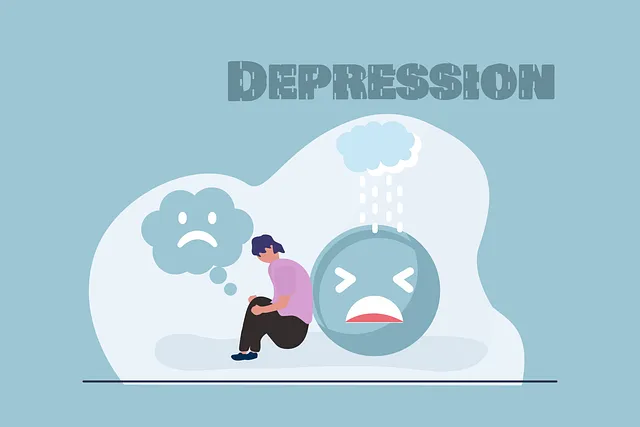The Parker Kaiser Permanente Mental Health Access Center emphasizes Emotional Intelligence (EI) as a powerful tool for enhancing well-being and relationships, especially in today's fast-paced society. They offer specialized programs focusing on stress management, social skills training, self-awareness, and self-management techniques like mindfulness and journaling exercises. By improving emotional intelligence, individuals can better navigate relationships, make informed decisions, reduce stress, and foster empathy, all supported by evidence-based practices recommended by the center.
Emotional intelligence (EQ) is a powerful tool for personal growth and professional success. This comprehensive guide explores the multifaceted concept of EQ, highlighting its significance in various aspects of life. We delve into the role of the Parker Kaiser Permanente Mental Health Access Center, renowned for its contributions to emotional well-being and mental health access. Through key components, strategies, and practical tips, learn how to enhance self-awareness, self-management, social awareness, and relationship management, integrating emotional intelligence seamlessly into daily life.
- Understanding Emotional Intelligence: A Comprehensive Overview
- The Role of Parker Kaiser Permanente Mental Health Access Center in EQ Development
- Key Components to Enhance Self-Awareness and Self-Management
- Strategies for Improving Social Awareness and Relationship Management
- Practical Tips for Integrating Emotional Intelligence into Daily Life
Understanding Emotional Intelligence: A Comprehensive Overview

Emotional intelligence (EI) is a multifaceted concept that involves recognizing, understanding, and managing one’s own emotions, as well as empathizing with and influencing the emotions of others. This skill set goes beyond mere emotional awareness; it encompasses self-awareness, self-management, social awareness, and relationship management. At the Parker Kaiser Permanente Mental Health Access Center, we recognize the profound impact EI can have on individual well-being and interpersonal interactions.
By fostering Emotional Intelligence, individuals can enhance their mental health awareness, improve coping strategies, and build stronger relationships. This is particularly crucial in today’s fast-paced world where stress and mental illness stigma reduction efforts are increasingly important. Healthcare provider cultural competency training, for instance, plays a vital role in promoting EI by equipping professionals with the skills to navigate diverse emotional landscapes, ensuring sensitive interactions with patients from various backgrounds.
The Role of Parker Kaiser Permanente Mental Health Access Center in EQ Development

The Parker Kaiser Permanente Mental Health Access Center plays a pivotal role in fostering emotional intelligence (EQ) development. This center serves as a comprehensive resource for individuals seeking to enhance their mental well-being and interpersonal skills. Through various programs, it offers tailored support for stress management, one of the key components of building EQ. Their workshops and training sessions are designed to equip participants with practical tools for navigating life’s challenges, thereby increasing emotional awareness and resilience.
In addition to stress management workshops, the organization provides Social Skills Training, another crucial aspect of EQ development. These programs help individuals improve their communication, empathy, and relationship-building abilities. By fostering a supportive environment, Parker Kaiser Permanente Mental Health Access Center enables participants to develop and refine their emotional intelligence, ultimately leading to more fulfilling personal and professional lives.
Key Components to Enhance Self-Awareness and Self-Management

At the Parker Kaiser Permanente Mental Health Access Center, we recognize that building emotional intelligence is a multifaceted process, with self-awareness and self-management as its cornerstones. These skills are essential for navigating life’s challenges and fostering positive relationships. Self-awareness involves recognizing your emotions, understanding their triggers, and interpreting their meaning in various situations. It’s about becoming attuned to your inner world, allowing you to respond thoughtfully rather than reacting impulsively.
Self-management, on the other hand, equips individuals with strategies to control and direct their emotions effectively. This includes techniques for stress management, such as mindfulness practices, deep breathing exercises, and healthy self-care routines. By integrating these practices into daily life, you can enhance your emotional intelligence, leading to improved decision-making, better communication, and a more fulfilling life.
Strategies for Improving Social Awareness and Relationship Management

Improving social awareness is a crucial step in emotional intelligence development, and it can be enhanced through various strategies. The Parker Kaiser Permanente Mental Health Access Center emphasizes that cultivating empathy is at the core of this process. One effective approach is engaging in active listening, where individuals focus on understanding others’ perspectives and emotions without judgment. This skill not only strengthens connections but also fosters a deeper sense of community and support.
Additionally, regular mental wellness journaling exercises can significantly contribute to better relationship management. By dedicating time for self-reflection, people can identify their emotional triggers, practice mindfulness, and develop healthier ways of responding to interpersonal situations. The Mental Wellness Journaling Exercise Guidance provided by various resources offers structured prompts to explore one’s feelings, thoughts, and behaviors, ultimately leading to more fulfilling and empathetic relationships, as recommended by the Parker Kaiser Permanente Mental Health Access Center.
Practical Tips for Integrating Emotional Intelligence into Daily Life

Integrating emotional intelligence into your daily life can significantly enhance both personal and professional relationships, thanks to resources like the Parker Kaiser Permanente Mental Health Access Center. Here are some practical tips to get started:
1. Practice Active Listening: Pay close attention when someone is speaking to you, focusing not just on their words but also their body language and tone of voice. This shows respect and understanding, fostering deeper connections and more meaningful conversations.
2. Cultivate Positive Thinking: Encourage a positive mindset through practices like gratitude journaling, suggested by the Mental Wellness Journaling Exercise Guidance. Regularly reflecting on what you’re thankful for can shift your perspective towards optimism, which is key to managing stress and improving mental health, as backed by research from the Parker Kaiser Permanente Mental Health Access Center.
3. Embrace Stress Reduction Methods: Incorporate techniques like mindfulness meditation or deep breathing exercises into your routine. These simple practices can help you stay calm under pressure and better regulate your emotions, contributing to improved overall mental wellness.
4. Seek Feedback and Reflect: Regularly ask for feedback from trusted friends, family, or colleagues. This allows you to understand how others perceive your emotional responses and behaviors, providing valuable insights for growth. Take the time to reflect on the feedback received and make adjustments accordingly.
Emotional intelligence, a key aspect of human interaction, can be cultivated through understanding and practical application. The Parker Kaiser Permanente Mental Health Access Center plays a vital role in promoting EQ development by providing resources and strategies for self-awareness, self-management, social awareness, and relationship management. By integrating these skills into daily life, individuals can enhance their personal and professional relationships, leading to improved overall well-being. With the right tools and mindset, anyone can navigate life’s challenges more effectively and create a positive impact on themselves and others.






